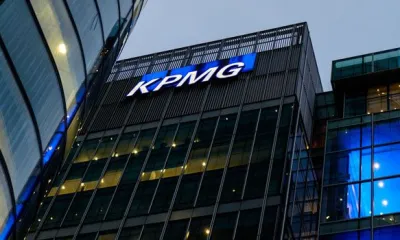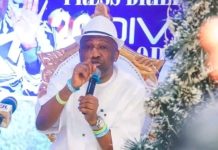According to KPMG Nigeria, if the government does not act quickly to increase revenues, Nigeria runs the risk of experiencing a worsening debt problem.
This was said on Tuesday in the KPMG Social Media Tax Chat segment headed “2023 Budget: Is Nigeria facing a revenue problem or a debt crisis?” by Adewale Ajayi, partner and head of tax, regulatory, and people services at KPMG.
Nigeria, according to Ajayi, is going through a revenue problem that has brought on a debt crisis.
“We would need to borrow money if we didn’t make enough money. We’ll get stuck in a borrowing cycle if we borrow to pay for ongoing expenses rather than revenue-generating infrastructure, he cautioned.
Nigeria’s debt service-to-revenue ratio was expected to increase from 76 percent in 2021 to 92 percent in 2022, according to the International Monetary Fund (IMF).
However, the government’s share of GDP has remained stagnant at a pitiful 6%, which is less than half of the average for frontier markets of 15%.
According to the Nigerian Economic Summit Group, as the country’s debt service to revenue climbs unchecked (currently at 119 percent of revenue) and the debt-to-GDP ratio approaches the 35 percent weak-risk threshold set by the IMF (currently at 23.3 percent in Q1-2022), Nigeria is gradually approaching a fiscal cliff or trap.
According to KPMG Nigeria, if the government does not act quickly to increase revenues, Nigeria runs the risk of experiencing a worsening debt problem.
This was said on Tuesday in the KPMG Social Media Tax Chat segment headed “2023 Budget: Is Nigeria facing a revenue problem or a debt crisis?” by Adewale Ajayi, partner and head of tax, regulatory, and people services at KPMG.
Nigeria, according to Ajayi, is going through a revenue problem that has brought on a debt crisis.
“We would need to borrow money if we didn’t make enough money. We’ll get stuck in a borrowing cycle if we borrow to pay for ongoing expenses rather than revenue-generating infrastructure, he cautioned.
Nigeria’s debt service-to-revenue ratio was expected to increase from 76 percent in 2021 to 92 percent in 2022, according to the International Monetary Fund (IMF).
However, the government’s share of GDP has remained stagnant at a pitiful 6%, which is less than half of the average for frontier markets of 15%.
According to the Nigerian Economic Summit Group, as the country’s debt service to revenue climbs unchecked (currently at 119 percent of revenue) and the debt-to-GDP ratio approaches the 35 percent weak-risk threshold set by the IMF (currently at 23.3 percent in Q1-2022), Nigeria is gradually approaching a fiscal cliff or trap.
Ajayi asserted that, as opposed to borrowing, the government should invest in infrastructure that will increase revenue and help fund budget deficits in order to reduce the country’s revenue crisis.
He asserted that Nigeria should reassess its incentive systems, cost of governance, oil theft and fuel subsidy issues, and income diversification in order to manage and handle the country’s revenue shortfalls and prevent a debt crisis.
Read also: Students protest ‘No School Fees No Exam’ policy of Rivers University
He claimed that switching from oil revenue to non-oil revenue, such as technology, will strengthen the nation’s revenue position. “From the success stories of leading countries, this is a vital area that the government needs to concentrate on.”
Grant incentives, not just tax incentives, might be used, according to Ajayi, to entice foreign investment. It’s important to consider the cost of incentives given to early-stage businesses or investors because they may have an impact on the revenue received by the new government.
He said that the use of technology will raise taxpayer compliance and help to lower the cost of government, supporting his ideas on how to handle the country’s income shortfalls.
Ajayi emphasized that the removal of gasoline subsidies would not solve Nigeria’s issue with revenue generation until the government made significant investments in oil refinery research and development.















